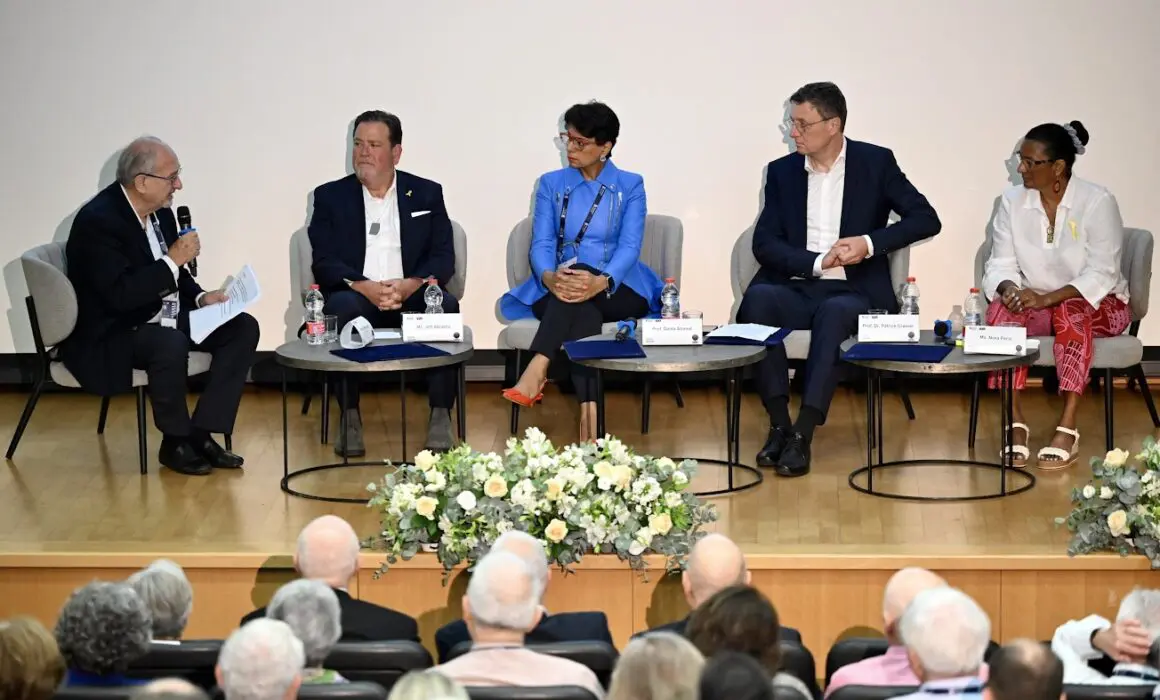Boaz Levy: Engineering Israel’s Future in Space
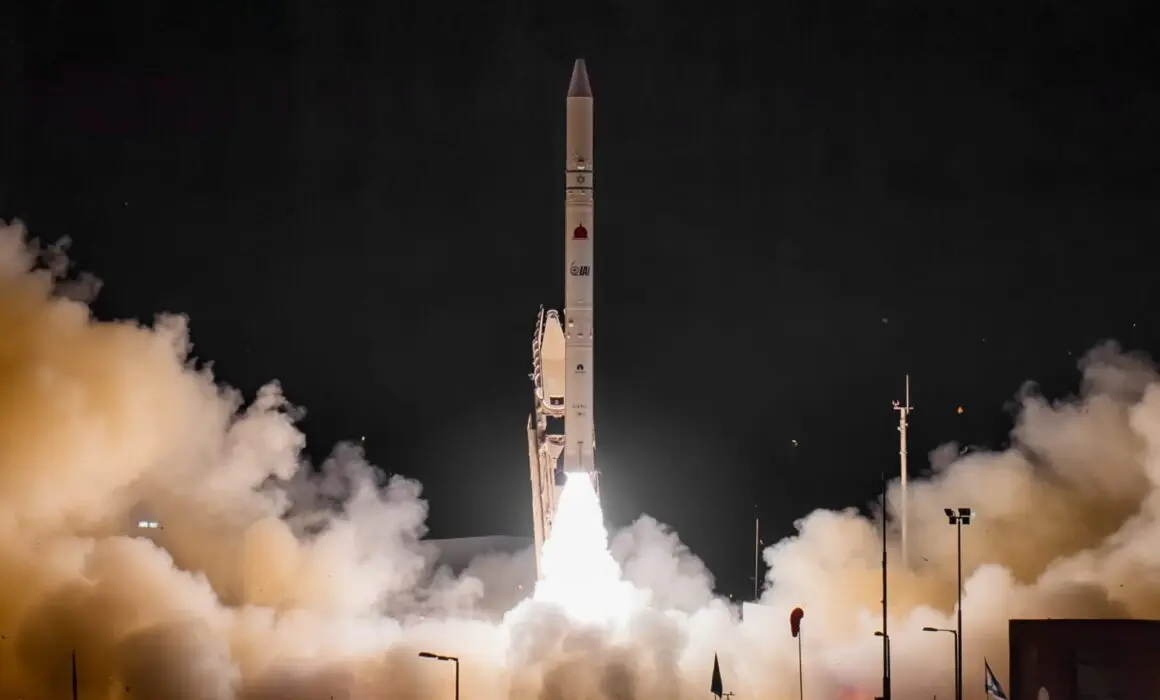
When Boaz Levy first set foot on the Technion – Israel Institute of Technology campus as a student, he was already a seasoned member of the Israeli Air Force, captivated by the mechanics of flight and the promise of space. What he didn’t know then was that his journey would lead him to become one of Israel’s most influential defense engineers, shaping the nation’s missile defense systems and mentoring a new generation of aerospace innovators.
Today, as chief executive officer and president of Israel Aerospace Industries (IAI), Levy leads a company of 15,000 employees — half of whom are engineers, and over a third of those engineers are Technion alumni. His story is not just one of personal achievement but also a testament to the Technion’s enduring impact on Israel’s security, economy, and technological leadership.
From Fighter Jets to Space Systems
Levy’s fascination with space began as a child, and he always knew he would be an engineer. But it was the Technion that gave him the means to turn that passion into a career. “The Technion gave me the opportunity to learn about the dynamics of flying vehicles, which is highly important when you are speaking about aircraft. It is even more important when you are speaking about interceptors. Those tools led me through all of my career.”
The Technion was the only institution in Israel offering a degree in aeronautical engineering, but Levy and other students saw a future in space and successfully lobbied for the creation of a space engineering track. He became one of the first graduates in aeronautical and space engineering, and later, the first to complete the Technion’s newly launched master’s program in systems engineering.
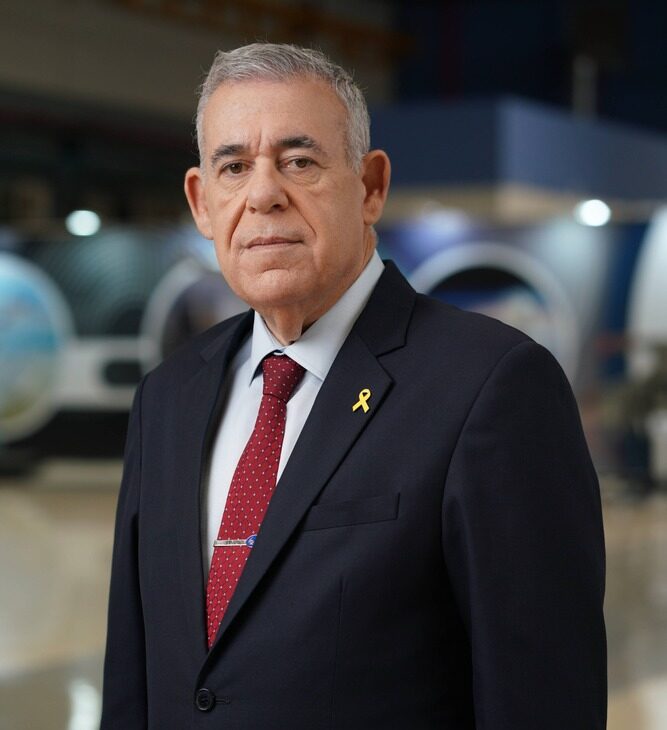
BOAZ LEVY
“In the defense sector, our mission is to save lives. To do that, we need the best engineers in the world. And that’s what the Technion provides.”
Boaz Levy, CEO of Israel Aerospace Industries
Engineering the Arrow Antimissile System
In the air force, Levy became an expert on guided weapon systems that ultimately led him to a career in defense. His career at IAI began in 1989 with a bold challenge: to help develop a missile defense system capable of intercepting ballistic threats, envisioned by another Technion alumnus, Dov Raviv.
Levy rose through the ranks — from guidance and control engineer to chief engineer of the entire Arrow program. He helped transform a visionary concept into a reality that now protects Israeli skies. “The question was, can you hit a bullet with a bullet?” he said. “And we proved that yes, we can.”
That proof came dramatically on April 13, 2024, when Iran launched over 100 ballistic missiles at Israel. The Arrow 3 intercepted the vast majority. “It was a perfect result of system design,” Levy said. “A perfect result of 30 years of development — from the first Arrow demonstrator to Arrow 3.”
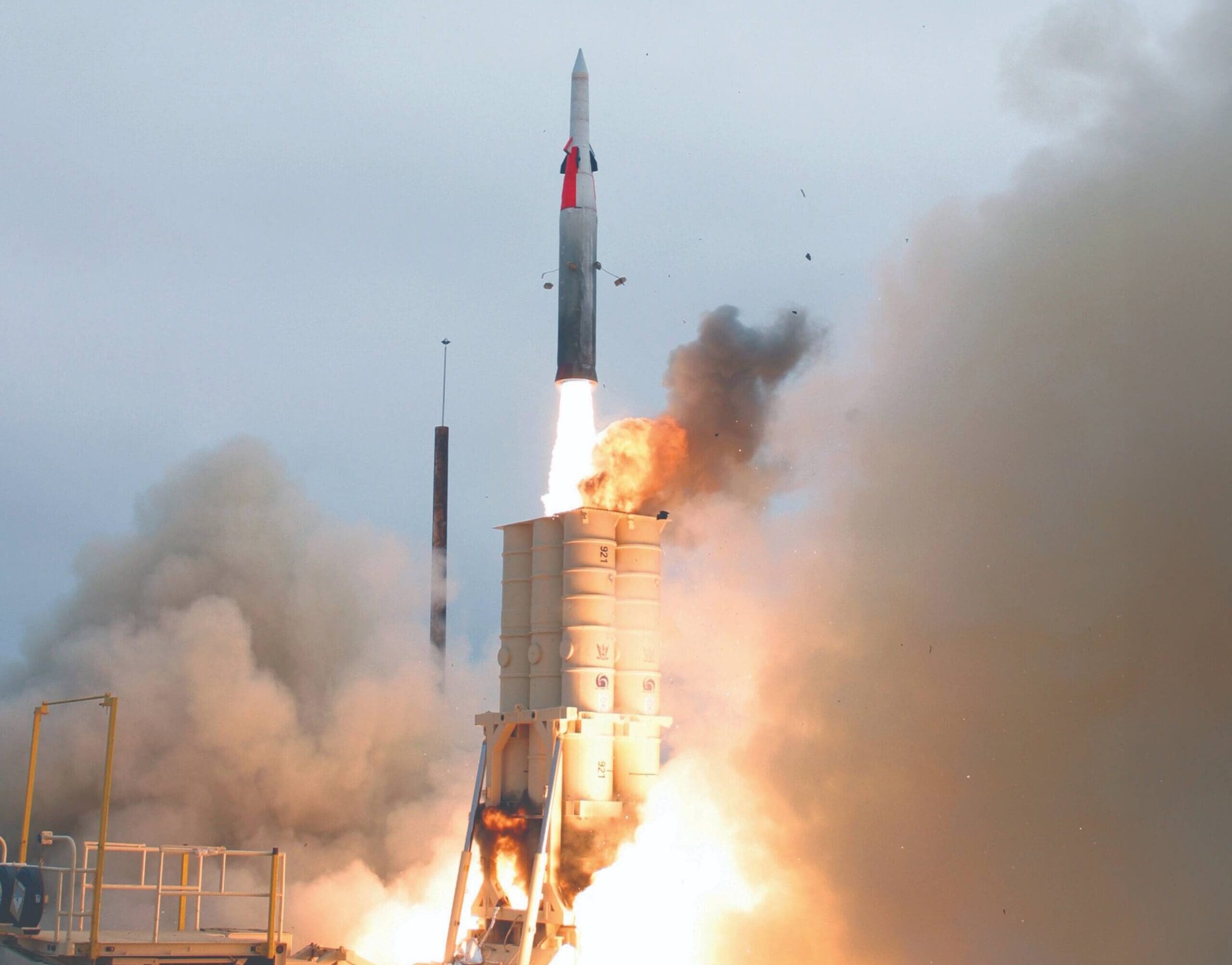
ARROW 3 ANTIBALLISTIC MISSILE INTERCEPTOR
The Technion’s Role in National Security
Levy credits the Technion not only for his own success but also for the strength of Israel’s entire defense sector. “The Technion’s role in producing world-class engineers is crucial for Israel’s security and economic prosperity,” he said.
Today, IAI collaborates closely with the Technion on cutting-edge research in space, artificial intelligence, satellites, and high-speed flight. The company even sponsors a tailored master’s program in systems engineering for its engineers and is developing a Ph.D. track in partnership with the University.
“The Technion is a major supplier of engineers in Israel,” Levy emphasized. “And those engineers are at the forefront of engineering, not just in Israel, but in the world.”
High-Speed Flight: The Next Frontier in Israel’s Aerospace Innovation
In the evolving landscape of aerospace and defense, speed is not just an advantage — it’s a necessity. Whether launching satellites into orbit or intercepting incoming threats, high-speed flight is at the heart of modern technological superiority. Levy understands this better than most. And he’s not just talking about it — he’s building it, in close collaboration with the Technion.
“Working on interceptors requires us to be fast enough to actually intercept the incoming threat,” he explained. “You need to maneuver, and you need to be very efficient and very fast.” Milliseconds can mean the difference between safety and catastrophe.
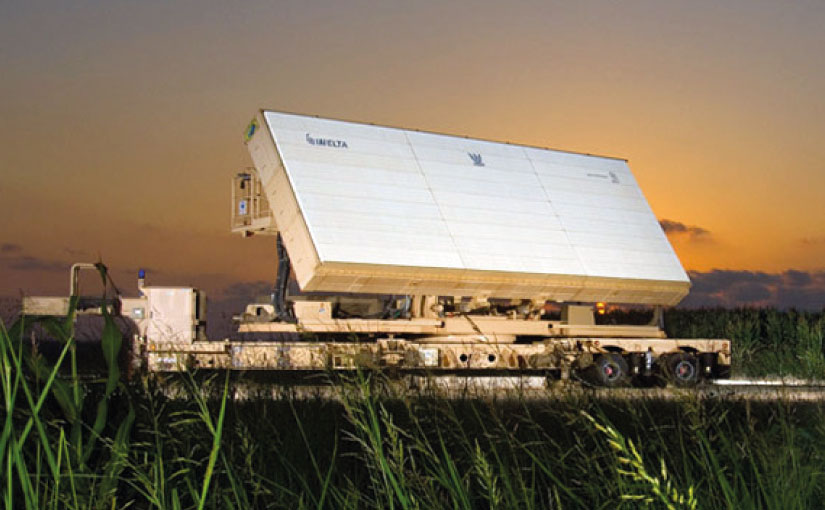
THE GREEN PINE RADAR PROTECTS ISRAEL’S BORDERS, DETECTING AND TRACKING PERILOUS PROJECTILES. CREDIT: IAI
But the importance of speed extends beyond defense. High-speed flight technologies are essential for launching satellites, which in turn support communication, intelligence, and search and rescue. “Launching a satellite requires energy and the right speed to escape Earth’s gravity,” Levy noted. “That’s why we need these technologies.”
Recognizing the strategic importance of this field, the Technion is investing in a new Center for High-Speed Flight. This initiative is designed to push the boundaries of what’s possible in aerospace engineering, from hypersonic propulsion to advanced materials and aerodynamics.
Levy confirmed that IAI is deeply involved in this effort. “We are developing technologies together in the Technion facilities,” he said. “Our laboratories, our engineers are involved. We are supporting and leading research that guides students toward solving real engineering challenges.”
A Strategic Alliance for the Future
The collaboration between IAI and the Technion is a model for how academia and industry can work together to address national and global challenges. By investing in high-speed flight research, they are not only enhancing Israel’s defense capabilities but also laying the groundwork for future civilian applications — from faster global travel to next-generation space exploration.
As Levy put it, “We are investing in technologies that will lead us into future systems.” And with the Technion as a partner, that future is arriving faster than ever.
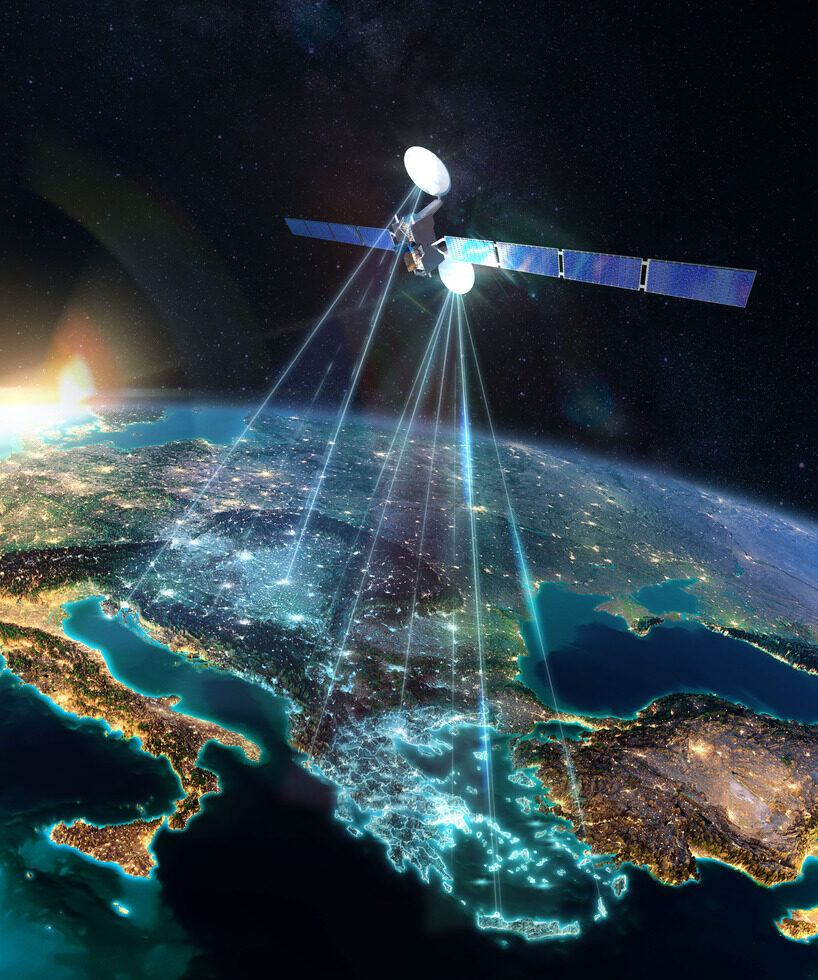
IAI’S MINI COMMUNICATION SATELLITE REVOLUTIONIZES GLOBAL CONNECTIVITY. CREDIT: IAI
Looking Ahead: The Next 100 Years
In addition to high-speed flight, Levy sees the Technion’s role as more critical than ever. “Technology keeps evolving,” he said. He believes the future lies in autonomous systems, AI, and system-of-systems design — fields where Technion graduates are already making their mark.
“I think the future battle space will operate autonomous vehicles that actually will replace soldiers. And by doing that, we will save lives.” To do this, he explained, requires new systems and engineers who think differently. “We need engineers who think out of the box. And the Technion is the best source for that.”
Why Support the Technion?
For Levy, the answer is simple: “In the defense sector, our mission is to save lives. To do that, we need the best engineers in the world. And that’s what the Technion provides.”



